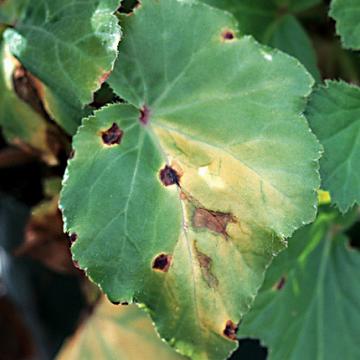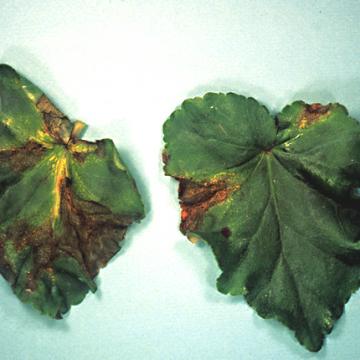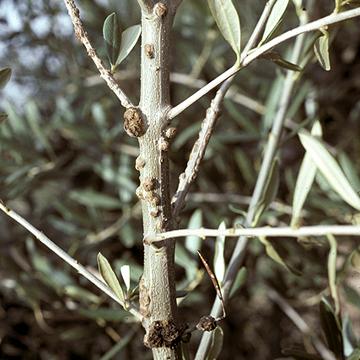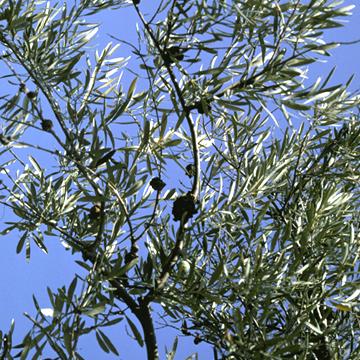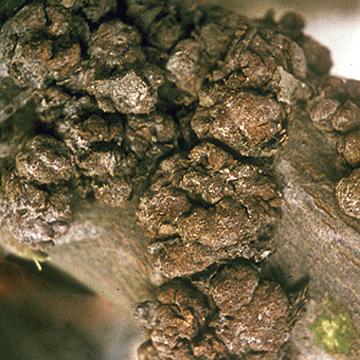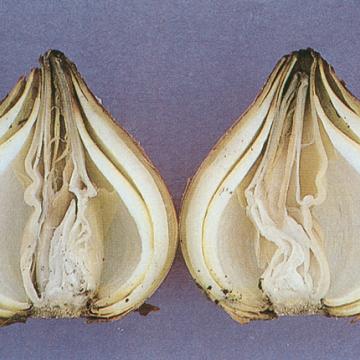DISEASE: Bacterial leaf spot (Blight)
HOST: Begonia
Initial symptoms appear as small, blisterlike lesions. As lesions age, they enlarge, producing broad patches of necrotic leaf tissue.
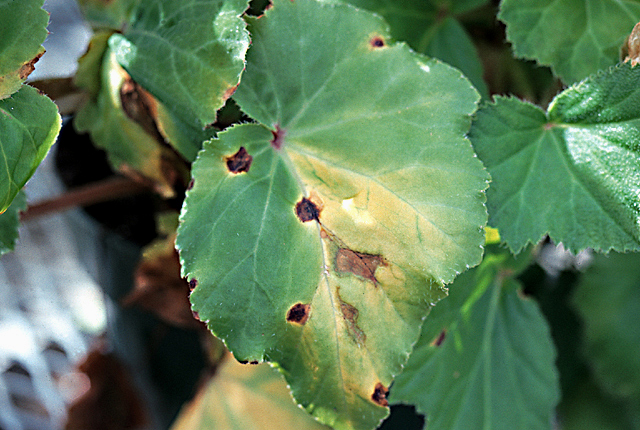
Bacterial leaf spot (Blight) | Begonia
DISEASE: Bacterial leaf spot (Blight)
HOST: Begonia (Begonia sp.)
PATHOGEN: Xanthomonas axonopodis pv. begoniae
PATHOGEN SYNONYM: Xanthomonas campestris pv. begoniae
SOURCE: APS
DISEASE: Bacterial leaf spot (Blight)
HOST: Begonia
Advanced stage of disease with dark, large necrotic areas on leaves and interveinal chlorosis.
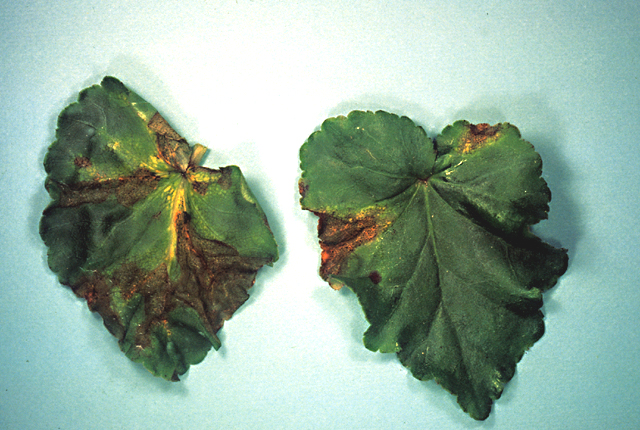
Bacterial leaf spot (Blight) | Begonia
DISEASE: Bacterial leaf spot (Blight)
HOST: Begonia (Begonia sp.)
PATHOGEN: Xanthomonas axonopodis pv. begoniae
PATHOGEN SYNONYM: Xanthomonas campestris pv. begoniae
SOURCE: APS
DISEASE: Olive knot
HOST: Olive
Multiple infections of young stems. The bacterium invades vascular tissues during certain times of the year and may be isolated from branches that appear healthy.
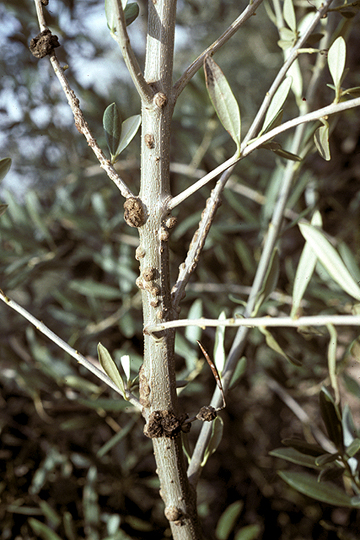
Olive knot | Olive
DISEASE: Olive knot
HOST: Olive (Olea europaea)
PATHOGEN: Pseudomonas savastanoi pv. savastanoi
SOURCE: M. Schroth
DISEASE: Olive knot
HOST: Olive
Tree with knots/galls on branches along with twig dieback, which is associated with knots. Fusarium and Diplodia spp. infect through knots and are thought to be main reason for dieback.
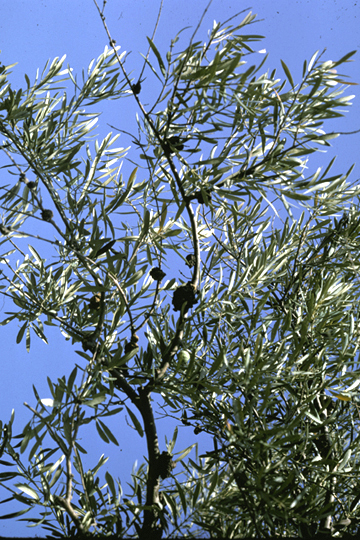
Olive knot | Olive
DISEASE: Olive knot
HOST: Olive (Olea europaea)
PATHOGEN: Pseudomonas savastanoi pv. savastanoi
SOURCE: M. Schroth
DISEASE: Olive knot
HOST: Olive
Multiple infections on olive branch. Knots at this stage begin to die from the outside in and are infected by several fungi.
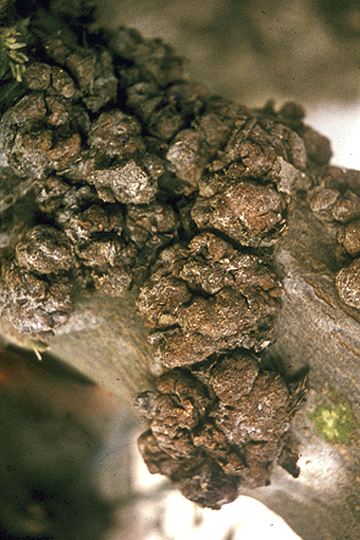
Olive knot | Olive
DISEASE: Olive knot
HOST: Olive (Olea europaea)
PATHOGEN: Pseudomonas savastanoi pv. savastanoi
SOURCE: M. Schroth
DISEASE: Slippery skin
HOST: Onion
Rot progresses from the top of infected scales and eventually internal tissues rot. In early stages, the only external symptoms may be softening of the neck.
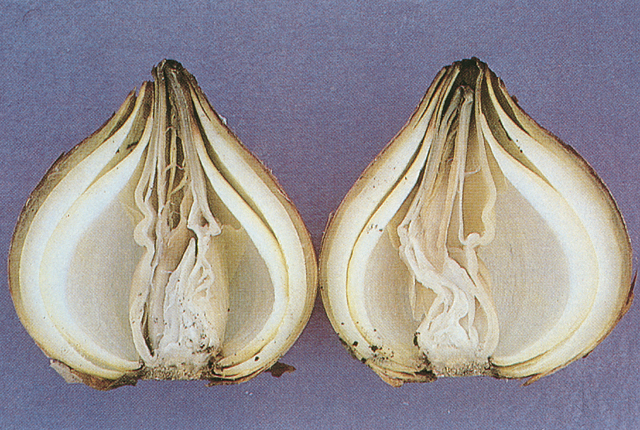
Slippery skin | Onion
DISEASE: Slippery skin
HOST: Onion (Allium cepa)
PATHOGEN: Burkholderia gladioli pv. alliicola
PATHOGEN SYNONYM: Pseudomonas gladioli pv. alliicola
SOURCE: H. Schwartz


